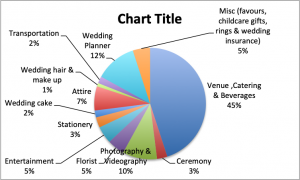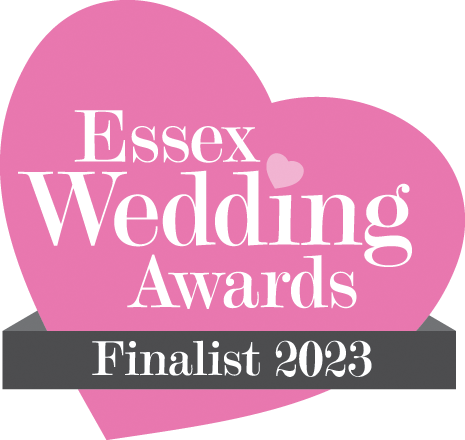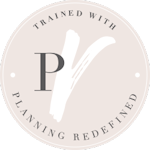Your Wedding Day Budget

Agreeing your budget is not the most exciting task you will undertake whilst planning your wedding, but it is an important one. As discussed in a previous blog post, Planning Your Wedding. Confirming your budget at the very beginning of your wedding planning journey will help you to identify early on the wedding you are able to host. This will prevent you from wasting valuable time researching venues and suppliers which are not within your budget.
Confirming your budget
Your wedding budget would normally be made up of three factors, savings, monthly contributions and family contributions.
Decide on an amount you are willing to allocate from your savings, as well as a figure you can comfortably set aside each month. Remembering to work out how many months you have to save before your preferred wedding day. Finally, discuss contributions with members of your families, ensuring that you confirm if they will be gifting a particular amount towards your wedding day fund, or, if they would prefer to pay for a certain element. If the latter, you will be able to remove this item from your budget.
Once this has been agreed, you then have your wedding budget. Now to allocate it!
What to include within your budget
Many couples are completely unaware of how many elements they will need to include within their wedding budget. For example, some couples may not appreciate the registrars fee is a separate cost from the venue hire fee. Whilst others may not have considered the need for a creche/childcare if they are inviting children, or guest transport if they are marrying and hosting their reception within multiple venues.
In order to highlight each item that should be considered, I will often share a draft budget with couples when we begin working together. An example of this budget breakdown has been listed below. Of course, some of these points may not apply to the wedding you are planning, so they can be excluded from your budget straight away. Please note, this budget breakdown is for couples planning to host their wedding within an established venue, rather than a marquee or dry hire venue.
Wedding Ceremony:
Church fees / Registrar fees
Ceremony flowers
Ceremony music
Wedding Reception:
Venue hire fee
Catering/beverages
Wedding cake
Venue florals
Additional styling
Musical entertainment for your reception, Wedding Breakfast and evening reception
Non musical entertainment
Additional Suppliers:
Photographer
Videographer
Wedding planner
Creche/childcare
Wedding party transport
Guest transport
Stationery
Bridal & Bridesmaids:
Wedding dress & accessories
Bridal bouquet
Bridesmaids & Flower Girl dresses & accessories
Bridesmaids & Flower Girl bouquets
Hair stylist
Make up artist
Groom & Groomsmen:
Grooms attire & accessories
Groomsmen & Page Boy’s attire & accessories
Button holes
Miscellaneous Suppliers:
Wedding Insurance
Rings
Gifts & favours
Prioritise
Once you have identified the elements that need to be considered, you can then begin discussing your priorities. This is an important process, as the percentage of budget that you allocate to each aspect will determine the supplier you are able to secure. It is therefore essential that you are realistic whilst number crunching. If for example you envisage your guests dancing all night to the sounds of a six piece band, then you should take into account a bands fee will be far higher than that of a DJ. Meaning that a greater percentage of your budget will need to be allocated to entertainment. It is also a good idea to research local suppliers whose style matches that of the wedding you are planning. Most will display a pricing guide on their website. If not, invest a little time making an initial enquiry to confirm their pricing structure. This is also a fantastic opportunity to interact with potential suppliers and begin to build a relationship with them.
What if your budget doesn’t fit
Most couples will encounter budget issues at some point throughout their wedding planning journey, so do not feel disheartened if this happens. Instead, take a look at where savings can be made.
If your dream venue is out of budget, consider hosting your wedding mid week or within low or mid season, both of which can drastically reduce the venues hire cost. Alternatively, tweak your caterers menu suggestions in order to bring them closer to your budget. Maybe you could consider treating the canapés you offer to your guests throughout your drinks reception as a starter, and then serve your guests a two course wedding breakfast rather than the traditional three course meal. If your florals are coming in over budget, consider discussing money saving tips with your preferred florist. They will be able to offer a selection of ideas such as suggesting seasonal blooms that will achieve the same look whilst reducing the cost.
As you will see from the above, no two wedding budgets are the same, and allocation is heavily influenced by a couples priorities. However, in order to provide you with a sample allocation, the chart below offers a guide as to how a general wedding budget would be allocated when a couple have not stated their priorities.

I hope that this blog post has helped set you on the right track with the allocation of your budget. If however you feel that you could benefit from working with a wedding planner and you are hosting your wedding within Essex, Suffolk, Kent, Hertfordshire or Cambridgeshire, then I would love to hear from you.
Image credit: Terri & Lori Fine Art Photography & Film
Pin It

Welcome to my Blog

Contact info
Hayley Jayne Weddings & Events
Brentwood, Essex
01277 226785
07889 171453
hayley@hayleyjayneweddingsandevents.co.uk
About Hayley
With a keen eye for detail, organisational skills that are second to none and the love of a “to do” list it was inevitable that Hayley would become an events planner. She started her career within the legal profession and was a Personal Assistant for 14 years before training with the UKAWP to become a professional wedding and events planner and then going on to launch “Hayley Jayne Weddings & Events”.








